
Farai Mugabe, Content & Research, The HR Congress
WHY SHOULD YOU CARE?
The pandemic has changed the world of work, the manner in which people work today is very different than a few years ago. Despite these changes, some organizations have not yet realigned their performance management systems which have become rigid in a new world of hybrid work and digital technology.
The pandemic killed the traditional workplace, and ushered in a new world of agility, pace, excellence, and innovation.1 The new agile and innovative workplace is now dominated by hybrid working, digital work, remote working, and flexible work arrangements. The manner in which people work today is no longer the same as they used to work two years ago or decades ago. Despite these changes in the world around us, some organizations have not yet realigned their performance management systems which have become rigid in a new world of hybrid work and digital technology. ‘
The agenda of the business is driven by its people who execute and perform. A good strategy is worthless if the people who are responsible for executing it fail to do so. Performance management is there to create a sense of accountability and ensure that strategy is effectively executed.
The new world of work
The world has changed and yet many businesses have not changed their performance management system for the past 40 years.2 If changes are done, they are just minor changes. This results in an archaic way of managing performance in a new radicalized world. A study by Forrester indicates that only 14% of employees strongly agree that the performance reviews inspire them to improve. This means that in a time when the world has changed, performance management has not yet changed.3
Hybrid work is the new way of working.4 A recent survey by Microsoft reveals that 73% of employees want to work in a flexible work environment whilst 67% are craving for an in-person meeting with their colleagues to build more collaboration and teamwork. This means that hybrid work dominates the current and future of work. 5
In such an environment where there is less physical contact, it is very critical for employers to rethink and reset the way they manage their entire human resources systems including performance management. Old ways of managing performance such as time control systems no longer inspire the modern-day employees. 6
Performance management is a continuous measurement and assessment of the value of employee value over a period of time. Data from performance management influences hiring, pay, and promotion decisions. Below are some of the key pointers that modern organizations should focus on to adapt to a changing new world of work. 6
- Focus on productivity and output
The workplace has changed over 80% of the global knowledge workforce is currently not working from the office. Traditional performance measures such as time spent at work or doing a task no longer suit the new hybrid and flexible working arrangements model that is dominating the world of work. In the new world of work that has evolved, physical presence at work does not mean being productive. People can work anywhere at any time. In these evolving times, one of the best ways to measure performance is to measure the results. The results in the end are what matters to steer the business forward.
- Performance is not isolated from other parts of the system
The organization is a system that cannot be separated from the parts of the business. 7It is often treated as a performance appraisal process that is done once or twice a year. When performance appraisals are done, they quite often do not consider other parts of the business and supporting business practices such as coaching, mentorship, leadership development, recruitment, culture, and Digital Employee Experience (DEX). 8When managing. Performance management should be treated as a continuous process that is not isolated from other organizational practices and parts. For performance management to be effective, companies must recruit the right person, create the right environment and offer the right support to employees. All other business processes and activities support each other and must not be operated in isolation.
- Performance management has become more digital than ever
The workplace has changed as a result of COVID 19. Digital transformation has been accelerated across the global economy. As the world changes, so have all facets of HR such as performance management and learning management.9 The world has become more agile and innovation-driven. Becoming more digital will help line managers to set performance goals, track goals and send notifications for performance appraisals more effectively.10 Line managers and HR professionals are also able to get performance management data in real-time, get analytical reports, and have more time to concentrate on valuable activities since the administrative burden will be taken away from HR.
- Constant communication is a key part of performance management
We are now in the era of agile performance management where constant communication is key to getting the best out of employees. 51% of millennials indicated that they valued very feedback and communication is critical for providing a sense of direction and feedback. 11 Another study indicates that 65% of Generation Z are a penchant for frequent feedback on their performance at least once per week.12 This shows that constant communication helps to identify challenges and continuously monitor progress. It also creates a feeling in employees that the manager is caring and supportive which then drives positive engagement and performance.
- Flexibility and work to life balance
Flexibility and work to balance have become critical triggers for enhancing employee performance in this evolved world of work. Employees now want jobs where they have more control of their work schedule, pursue other life goals, and spend much more time with family. An employer who offers greater flexibility in terms of working hours and works planning is able to drive more on employee performance and engagement.
- Great rewards for a great job
In the new world of work, employers also need to be innovative on issues to do with rewards and recognition at work. Recognition at work such as employee performance awards with certificates and trophies, congratulatory messages and birthday celebrations are some ways to win the hearts of your employees.
- Performance management is an agile process
Performance management is now an agile process that is continuous and results-driven. Managers and subordinates should not wait for the performance appraisal day to correct something that is wrong. The performance management process should also be continuously improved. Significant problems with performance ratings should be corrected.6 A study by Forrester indicates that only 14% of employees strongly agree that the performance reviews inspire them to improve.3 This means that in a time when the world has changed, performance management has not yet changed to suit the new world. Companies need to adopt an agile approach to performance management where performance is an ongoing activity, not a once-off activity.
Conclusion
The world has changed and so is the psychological contract between employers and employees. To keep employers engaged, people leaders must rethink and reset the way in which they manage employee engagement.

…
1COVID Killed the Traditional Workplace. What Should companies Do Now? , by Dina Gerdeman
https://hbswk.hbs.edu/item/covid-killed-the-traditional-workplace-what-should-companies-do-now
2Performance Management as Organisational Control: Breaking free from the Ghost of PM’s Past, by Alan Colquitt
3Is Performance Management Broken?, by Besty Summers, Forrester
https://www.forrester.com/blogs/is-performance-management-broken/
4Updating Talent Strategy for Hybrid Work, by Betterworks,
https://www.betterworks.com/magazine/updating-talent-strategy-for-hybrid-work/
52021 Work Trend Index: Annual report. The next great disruption is hybrid work- Are we ready? by Microsoft
https://ms-worklab.azureedge.net/files/reports/hybridWork/pdf/2021_Microsoft_WTI_Report_March.pdf
6Remove the Shackles from Performance Management, by Alan Colquitt, Linked In
https://www.linkedin.com/pulse/remove-shackles-from-performance-management-so-can-colquitt-ph-d-/
7Next Generation Performance Management: The Triumph of Science Over Myth and Superstition, by Alan Colquitt, Information Age publishing
8HR at the hub of driving Digital Employee Experience (DEX) in an evolving workplace, by Farai Mugabe
9AI in HR-Does it Hold Key to Success, by Casey Pechan,
https://www.betterworks.com/magazine/ai-does-it-hold-the-key-to-hr-success/
10Retain Your Top Talent: Say Hello to Personio Performance & Development, BY Personio
https://www.personio.com/blog/personio-performance-development/
11Millennials at work Reshaping the workplace, by PWC
https://www.pwc.com/co/es/publicaciones/assets/millennials-at-work.pdf
12STATE OF GEN Z 2018: Surprising New Research on Gen Z as Employees and Consumers, by Centre for Generational Kinetics,
Written by: Mihaly Nagy
Employee Engagement Employee Experience Future of HR Future of Work HR Tech Performance Management Strategy & Transformation
Post comments (1)
Previous post

- 5352
labelArticles today2022.04.14.
Managers in the Middle: The Great Disconnect between Managers and HR
Laura Schroeder, Brand Strategist | HR Tech Advisor | Scale Up Coach | Impact Investor | Speaker WHY SHOULD YOU CARE?Employee experience is essential for business success, however, a critical [...]
Similar posts

labelArticles today2024.07.24.
AI-Powered HR: Strategic Benefits and Practical Applications

labelArticles today2024.06.24.









Benjamin Kurima on 2022.04.24.
Insightful content📝🤝🤝🤝